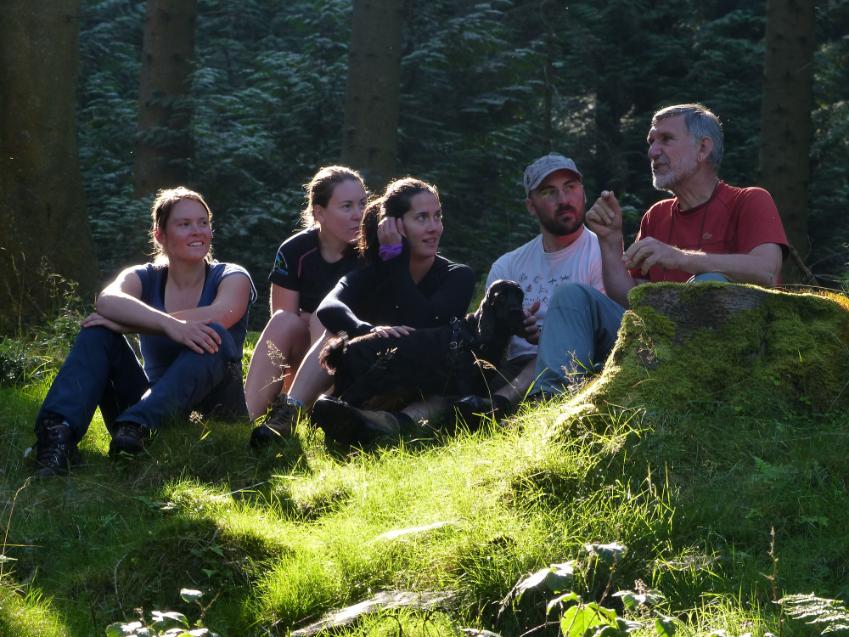MA - Outdoor and Experiential Learning (Ambleside)
If you love the outdoors and are passionate about helping others to be confident in who they are and the contribution they are making to society, the environment and the planet, then the Outdoor Experiential Learning programme is for you.
Nestled in the stunning Lake District, you’ll be based at our historic Ambleside campus - placing you at the forefront of sustainable futures, social justice, and experiential education.
Taught by internationally recognised experts in outdoor environmental sustainability education, mental health, wellbeing, and bushcraft, this MA is designed for those eager to challenge conventions, think critically, and transform outdoor learning. Our interdisciplinary approach brings together students from diverse backgrounds, creating a vibrant community of change-makers.

Course Overview
The MA in Outdoor and Experiential Learning isn’t just about studying experience, it's about living it. From hands-on engagement in diverse environments to critical reflection on cultural, ecological, and political perspectives, this course immerses you in learning that is as dynamic as the landscapes we explore.
Join us at our Ambleside campus, where you’ll live and study surrounded by mountains, forests, rivers, and lakes—an unparalleled setting for outdoor education. Become part of an international network of leaders who are redefining outdoor and experiential learning for the future.
Our graduates go on to inspire and lead in a variety of roles, including educators, outdoor practitioners, environmental consultants, sustainability leaders, mental health and wellbeing specialists, development trainers, and social change advocates.
To reflect this contemporary trend, there are three pathways to choose from which reflect current applications of experiential learning:
- Outdoor & Experiential Learning: The core pathway, designed for those passionate about outdoor education and innovative learning.
- Outdoor & Experiential Learning (Bushcraft): Master traditional skills and explore the deep connections between humans and nature.
- Outdoor & Experiential Learning (Health & Wellbeing): Investigate the role of nature in mental health, therapeutic landscapes, and personal development.
On this course you will...
- Think beyond boundaries – Challenge conventional ideas about experiential learning, outdoor education, and your own personal and professional journey.
- Learn across disciplines – Draw from anthropology, philosophy, eco-psychology, bushcraft, therapeutic landscapes, pedagogy, and the arts.
- Gain immersive experience – Learn in real-world environments, from remote wilderness settings to community-led initiatives.
- Be inspired by experienced lecturers – with global research expertise and pioneering approaches to education.
Location
Ambleside Campus
Nestled in the Lake District National Park, a UNESCO World Heritage site, the Ambleside campus is the perfect place for world-savers, animal lovers, and adventurers. There is never a dull moment when surrounded by such natural beauty and opportunity.
Find out more
Find out more about studying with us
Attend an Open Day at Cumbria
An Open Day is your opportunity to explore one of 5 campuses, meet your lecturers, and find out how the University of Cumbria could become your new home.





